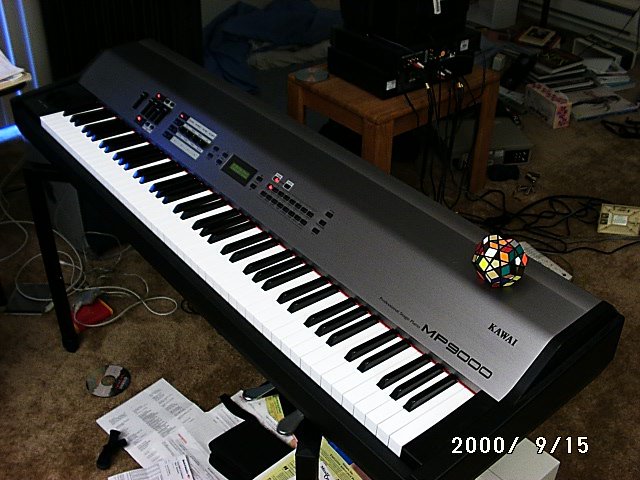Classical Keyboard Music
I love music. I listen to mostly classical, pop, electronica, and dance frenzy music. (See some of my favorite non-classical music here: Ethology, Ethnology, and Lyrics) I hate heavy metal or any such, i dislike and despise jazz, don't like country music, don't like rap in general but some.
Of classical music, i almost exclusively listen to piano music, but some organ music of Bach, and some concerto, and chamber music. I don't like orchestra music much (i.e. symphonies). And among piano music, i mostly listen to Bach and Franz Liszt.
In rough percentage, its like 30% Bach, 40% Liszt, both keyboard music, rest 30% pop and other.

A note on Bach: Bach's music are of supreme purity. They are extremely mathematical. Certain pieces, notably the Well Tempered Clavier Book I number 4 (C sharp minor) 〔see Bach, Well-Tempered Clavier, Book 1, Fugue 4 🎵〕 , are of the most austere perfection. Beginning with the first note, the music flows with a deterministic and unstoppable force. With precision, it slowly and surely drives your brain on a unerring path towards singularity till it bursts with overloading. (note: There is a subtlety hidden under the popular claim that Bach's music is “mathematical”. One can never really explain or define what it means for a music composition to be mathematical, but it doesn't mean this common sentiment is incoherent or senseless. Proper resolution is one elusive mystery of music theory and logic.).
A note on Liszt: Some of Liszt's music are extreme pain. Somber and sadistic. Vehement pain hidden in poetic beauty. Unbearable passion for the suffering world. Examples are his Transcendental Etudes, Years Of Pilgrimage, and many of his paraphrases. The Transcendental Etudes are said to be the most difficult pieces to play in all piano literature. (other works has such claim too, this being rather a subjective matter.)
Some comments on etudes. I like etudes a lot. Etudes are study pieces, where the composer explores a particular finger technique or theme. Etudes often involves running a scale or repeating a pattern. There are three composer's etudes that stands out for me. They are Bach, Chopin, and Liszt. If I can only have 3 selections of classical music to listen to in my life, they would be Bach's Well-Tempered Clavier, Liszt's transcendental etudes, and Chopin's two books of etudes.
Chopin's etudes are often sentimental. Some are merry, some are awe-inspiring. They manipulate your mood through explicit and maudlin means. Your heart is placed on a roller coaster. The rises and falls are immediate, and you and the music are together as one.
Bach's etudes (i.e. Well-Tempered Clavier) are mathematical and untouchable. The notes steadily flow out from the metronome with clarity and exactness. The tempo may increase or decrease occasionally, but the duration and onset of notes are neat fractions of the measure. They evoke feelings from all extreme ends, but the pieces remain regal and pure. One misplaced note will collapse the whole structure. You appreciate them because their mathematical beauty. If tears swell in your eyes, that is because this beauty has surpassed your perceptive extremities.
Liszt's transcendental etudes are romantic like Chopin's, yet, paradoxically, they are extremely cold like Bach's. Notes run freely, sometimes frantically, sometimes dully. They are less restrained than Chopin's. Listening to them are like watching a picaresque story on film. However touching, it remains distant. You do not feel as if it is part of you. When the passage runs to the dismal, painful, suffering, and crying out for help, but all you can do is nothing. You are doomed to sit there and watch what happens happen. You are dragged into a inescapable picture of darkness and pessimism. Powerless to avert the torture. You pity the world and pity yourself. On some passages, each note is a knifing on your heart. It repeats, over, over, over, and over with greater intensity and sternness. Forces of nature in execution without mercy. Dire ending is the destiny. If you cry for stop, it is not because you are sick to your heart of Chopin's sentimentality, nor because your nerves cannot process one more note of Bach's perfection, but because you wish to end the suffering.